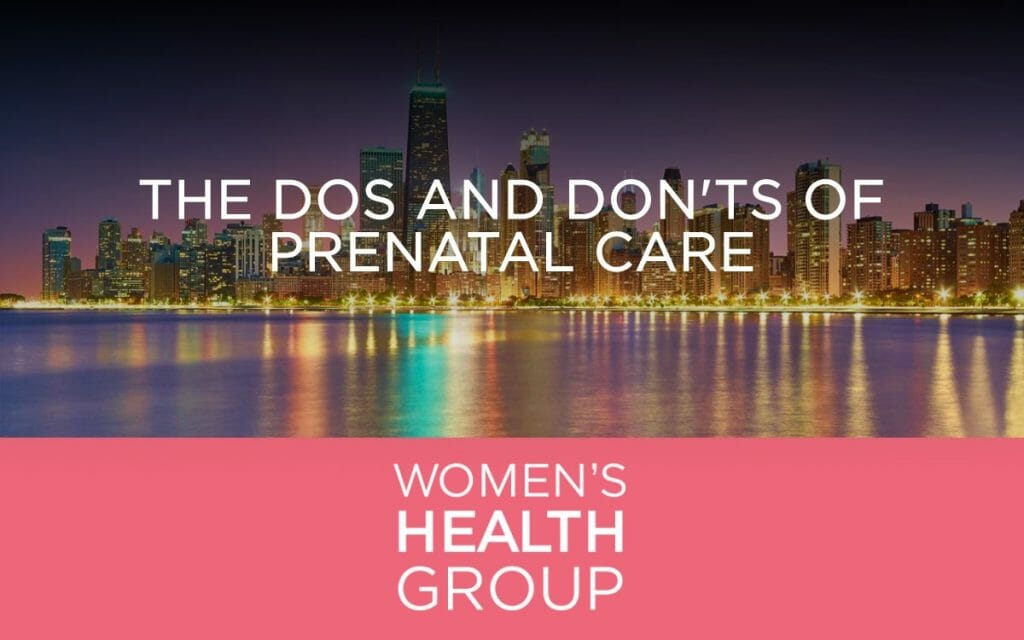The Importance of Prenatal Care
Prenatal care plays a significant role in fostering a healthy pregnancy and ensuring the well-being of both mother and baby. Regular prenatal visits enable physicians to monitor the pregnancy and identify possible health problems or complications before they become critical. At Women’s Health Group, our team of experienced obstetricians and gynecologists recognizes prenatal care’s significance in Chicago, Illinois, and emphasizes the importance of following certain ‘Dos and Don’ts’. This blog post aims to provide insightful, valuable guidance to expecting mothers.
The Prenatal Dos
Prioritize Regular Prenatal Visits
One of the key things to do during your pregnancy is to ensure your regular attendance at prenatal visits. These important check-ups help your doctor track your health and your baby’s progress, enabling the detection of any potential issues at an early stage.
Maintain a Healthy Diet
Eating a balanced, nutritious diet is crucial during pregnancy. The American College of Obstetricians and Gynecologists recommends incorporating food groups rich in protein, calcium, iron, and folic acid into your daily diet. Folic acid, found in leafy greens, peas and lentils, can significantly reduce the risk of neural tube defects.
Stay Active
Unless contraindicated by your doctor, moderately intense physical activity, such as walking or prenatal yoga, can have multiple benefits. Regular exercise can alleviate common pregnancy discomforts like backache and fatigue, help prepare your body for labor and delivery, and improve your mood and energy levels.
Keep Yourself Hydrated
Staying hydrated is also vital during pregnancy. Water plays an essential role in forming the placenta and amniotic fluid. Aim to drink at least eight to 12 glasses of water a day.
The Prenatal Don’ts
Avoid Certain Foods
During pregnancy, certain foods should be avoided as they pose a risk to you and your baby. Unpasteurized dairy products, undercooked or raw seafood, meats, and eggs, can contain harmful bacteria that can lead to foodborne illnesses.
Limit Caffeine Intake and Avoid Alcohol
Caffeine crosses the placenta and can affect fetal heart rate and breathing patterns. Limiting your intake to less than 200 mg per day is typically considered safe. Alcohol, on the other hand, is a no-go. There is no known safe level of alcohol during pregnancy.
Steer Clear of Hazardous Substances
Avoid exposure to environmental risks such as radiation, lead, and some types of chemicals, as they can harm the fetus. Even secondhand smoke poses significant health risks to expecting mothers and their babies.
Ignore Unwanted Advice
Pregnancy often seems to invite free advice from others. While most people mean well, remember that inaccurate information can cause undue stress or even harm. Rely on your healthcare provider for accurate, personalized advice and guidance.
To better understand the detailed prenatal dos and don’ts, you can visit the comprehensive guide given by the Mayo Clinic and Women’s Health Gov.
The Role of Mental Health in Prenatal Care
As much as physical health is important, mental well-being also plays a crucial role in prenatal care. Stress and anxiety during pregnancy can lead to premature birth and low birth weight. Seeking support and talking about your fears is not a sign of weakness but a step towards a healthier pregnancy. It’s okay not to feel okay, and reaching out to mental health professionals can be beneficial.
Conclusion
The journey to motherhood is a remarkable one, and our team at Women’s Health Group is here to assist all mothers-to-be in this journey. Adhering to the prenatal dos and steering away from the don’ts can make a big difference in enjoying a healthy pregnancy. Your health and your baby’s health should always be the priority, and with careful prenatal care, we can ensure the best possible outcomes. Remember, there’s no one-size-fits-all approach to prenatal care; each pregnancy is unique and should be treated as such. Always consult with your healthcare provider for personalized advice and guidance.
Women’s Health Group is committed to providing valuable information and guidance to all expecting mothers. Please feel free to contact us in Chicago, Illinois, for any further queries or concerns.




